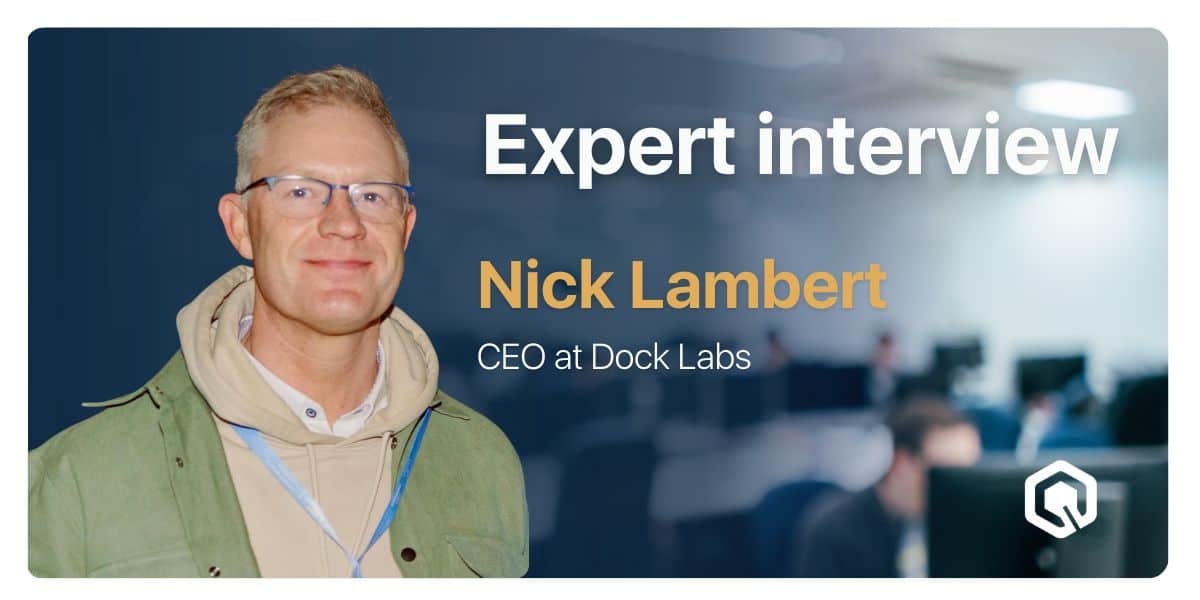With good technology and a solid plan, we can contribute to a better society. For Kees Verhoeven, Ubiqu’s new Chief Strategy Officer, Ubiqu’s digital identity solution will do exactly that.
But Kees’ vision doesn’t stop there. With its potential to conquer the digital identity wallet world, Ubiqu sets the scene for the Dutch tech sector, he believes. Now is the time to drive Dutch innovation further, build a long term vision, and reduce dependency on international players.
In a world of political turmoil, global unrest, and rising cyber threats, the saying ‘Global challenges, Dutch solutions’ has never been more relevant.
About Kees
Kees Verhoeven was a member of the House of Representatives for D66 between 2010 and 2021. In this role, he was known for his commitment to privacy and a better digital government.
As an independent entrepreneur, Kees now commits to the good use of digital technology by people, organizations and society as a whole. With his company Bureau Digitale Zaken, he acts as a speaker, advisor and author.
Building a tech portfolio
When joining the House of Representatives, cyber-related matters were not on the top of Kees’ mind. “I focused on finance and housing. At a certain point, however, some internet-related issues came along that drew my attention, such as those of net neutrality and cookies, and I started getting involved. It was an interesting time to do so, because at that point, it wasn’t clear yet to what extent the internet would become such a political and social theme.”
At that time, it was more about financial power, Kees adds. “People were downloading music for free. What did that mean for musicians? Or think about the issue of net neutrality. What would it mean if Google would get favored over smaller players? Later, the focus shifted more from financial concerns to cyber security and privacy concerns. And at the moment, we start thinking more and more about the societal impact of technologies. What does the internet actually do to our society? And what does that mean to humanity?”
From politics to health and happiness
As an entrepreneur, Kees’ focus on developing digital technologies is now threefold: his interest lies in the political and societal impact of the digital world, the balance between effective and ethical use of data and AI, and a future-proof digital society with healthy and happy people.
And the latter is an important topic for him. “For example, there’s now an increasing amount of research showing the negative impact of social media on young people. And I can see why: it’s hard not to compare yourself to others on LinkedIn or on Instagram. And what about the boundary between private life and work? With so much going on on your phone all the time, these lines are increasingly blurred, making it hard to take a break and focus on your mental health.”
Conquering the wallet world
However, new digital technologies can have a hugely positive impact – if we do it well. For Kees, Ubiqu sets an example. “With good technology and a solid plan, we can contribute to society. And that’s definitely the case when it comes to the digital identity wallet: there’s so many use cases to think about where the wallet will make life easier, and even more fair for people.”
This ranges from tackling efficiency-related issues in healthcare, to privacy issues, even to discrimination issues. “We are human, which means we have flaws. For example, we often have biases and prejudices. Our digital identity ensures that we share only the necessary information with each other. If we are able to cancel out those biases by sharing and judging only the relevant information, for example in job applications or housing applications, we can cancel out some of those biases as well.”
Ubiqu’s product has potential to conquer the so-called wallet world, Kees adds. “With the technology they have developed, I really see Ubiqu as the frontrunner in digital identity.”
Driving Dutch innovation
Ubiqu’s success – and its potential – should be seen in the bigger picture, Kees notes. “Ubiqu is a great example of how Dutch companies can play a big role in innovation. We have highly-skilled people, we have a good digital infrastructure, and we have great technological startups. Ubiqu sets the scene for the Dutch tech sector: now is the time to drive innovation further.”
A first reason why driving Dutch innovation is important is autonomy. “This draws back to my third key focus on tech and happiness. I think that one of our biggest threats right now is that we become dependent on large international players, and lose control over our digital lives. That is not a healthy situation: not for our economy, and not for ourselves.”
“So we have to make sure that we as the Netherlands and as Europe do not become too dependent on the same players who offer our cloud solution, who build our platforms, who manage our data completely, and who develop our software packages,” Kees says. “We have to keep that dependency low and, at the same time, grab our opportunity to show the high-quality, high-potential products we have built ourselves.”
Finding the long term vision
We have to start focusing on the long term, Kees says. “The Dutch government tends to focus on making cuts, not spending too much, especially in this time where there’s a lot of insecurity and political turmoil. But investing in technological innovation will pay back. Maybe not immediately, maybe not tomorrow, but we will benefit from it for a long time.”
“We’re a country with a strong entrepreneurial spirit – and with a lot of pride. Global challenges, Dutch solutions: that has been the motto. The Dutch government should stimulate that business climate again, because that’s how we as a country thrive.”
Joining Ubiqu
As the Chief Strategy Officer, Kees aims to take the role between the highly-technological and sometimes complicated product, and the place the product should take in society.
Digital identity, eIDAS 2.0, and the EUDI Wallet are not easy concepts to grasp, Kees admits. “It took me a couple of long study sessions to fully understand the definition and the implications of the topic. If I have a hard time understanding it, how do we extend our knowledge to the rest of the Netherlands?”
At the moment, Kees is working on a strategy to explain digital identity, Ubiqu’s product, and the implications of eIDAS 2.0. “In doing so, we want to remain aware of current challenges in society, and respond appropriately. For example, it’s really important for us that people trust digital identity. It might be scary to move from a physical passport to a digital one. It’s our responsibility to explain why the option is actually a safer one.”
Webinar on the impact of eIDAS 2.0
Kees will join our English-spoken webinar on December 3rd on the impact of eIDAS 2.0 on governmental organizations, together with Ubiqu founder and CEO Boris Goranov.
Governmental organizations have to get serious about their preparations, Kees says. “And the government has to start making choices too: are we creating our own wallet or are we outsourcing this? Which parties should we be working with? What are our preconditions? And how are we explaining the concept to the Dutch citizens, in a way that everyone understands it? In the webinar, we’ll start addressing those questions.”
Now is the time to get involved, Kees adds. “The technology is here, the people are here: let’s show the world what we have to offer.”
To find more information about the webinar and to sign up, visit this link.



